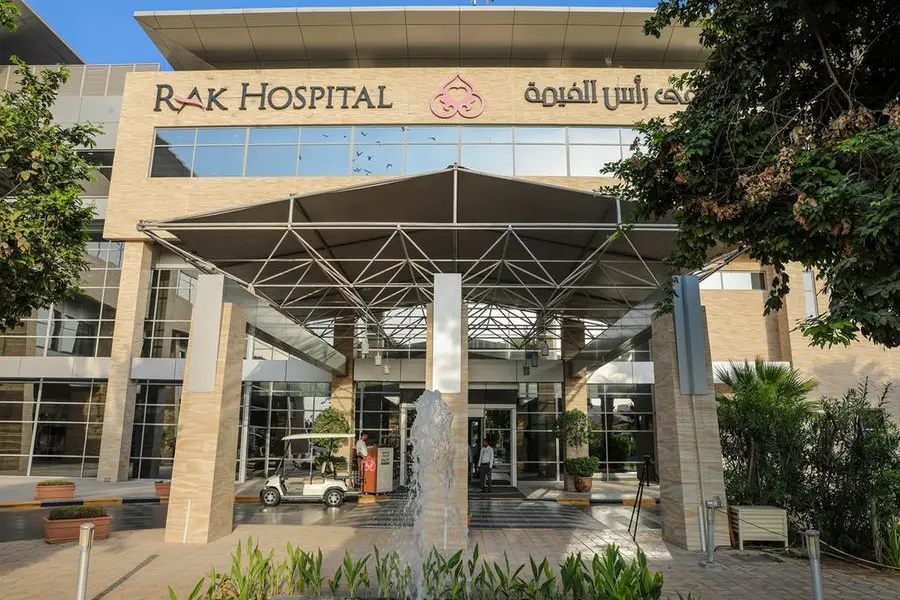PHOTO
Ras Al Khaimah: As part of its ongoing RAK Diabetes Challenge community initiative, RAK Hospital held an insightful Diabeat Webinar on the link between diabetes and kidney disease, shedding light on the prevention and management of Diabetic Nephropathy. Led by Dr. Ajinkya Patil, Specialist Nephrology at RAK Hospital, the session provided valuable information on how diabetes affects the kidneys and the importance of early screening to mitigate long-term complications.
Dr. Patil began by describing diabetes as one of the most dangerous non-communicable pandemics facing the modern world, with a staggering 12.3% prevalence in the UAE—equivalent to over 1.2 million people, and an even higher rate of 25% in the northern emirates. Citing data from the International Diabetes Federation, he noted the UAE’s diabetes rate is higher than the global average of 9.3%, posing a significant public health challenge.
“Diabetes is not just a single-disease entity; it’s a systemic illness that impacts multiple organs. When it targets the kidneys, we call it Diabetic Nephropathy, which is one of the most common complications,” Dr. Patil explained. With Diabetic Nephropathy affecting 6.8% of diabetics, it ranks as the most frequent diabetes-related complication, ahead of other conditions like neuropathy (5.3%), retinopathy (4.2%), and coronary heart disease (3.2%). Dr. Patil pointed out that many people may be unaware of their condition, with over 10% of the population potentially living with undiagnosed diabetes.
In his talk, Dr. Patil explained that diabetes damages the kidneys by affecting the tiny blood vessels responsible for filtering waste. When these vessels become impaired, waste removal is compromised, leading to a condition known as microalbuminuria, where protein leaks into the urine. “The presence of proteins in the urine is the first warning sign of kidney damage and can be detected through a simple urine test,” he noted. Alongside a urine test, a blood test measuring Urea, Creatinine, and eGFR can indicate kidney function, allowing for early intervention before significant damage occurs. Once kidney disease is suspected, more comprehensive assessments such as ultrasound imaging and further kidney function tests are conducted.
The population at highest risk includes individuals with poorly managed blood sugar, those who are obese, lead sedentary lifestyles, smoke, or have hypertension. Dr. Patil emphasized that kidney disease symptoms often go unnoticed for the first 2-3 years, leaving patients unaware until more serious stages of the illness. “An informed patient who sees signs like frothy urine, leg or foot swelling, persistent fatigue, loss of appetite, or recurring nausea can seek help earlier, which is critical for better outcomes,” he stressed.
Addressing the treatment of Diabetic Nephropathy, Dr. Patil emphasized that managing blood sugar and blood pressure is foundational. Nephrologists use a specific set of medications, including ACE inhibitors, ARBs, SGLT2 inhibitors, and the recently introduced Finerenone, to slow kidney disease progression and improve kidney function. “While these medications play a critical role, they are most effective when combined with lifestyle modifications,” he said, highlighting dietary adjustments like reducing protein intake to 1g per kilogram of body weight and avoiding processed foods and high salt levels. Moderate daily exercise, such as walking for 30 minutes, and quitting smoking are also essential to managing kidney health.
Dr. Patil warned that without addressing Diabetic Nephropathy in its early stages, patients could eventually experience a severe decline in kidney function, potentially leading to dialysis dependency. “Failing to intervene early can mean dialysis becomes a necessity in later years, making it crucial for every diabetic to undergo routine kidney function screening,” he added. He advised individuals to work closely with nephrologists, who are trained specifically in managing and treating kidney diseases with the latest advancements in care.
The Diabeat Webinar underscored RAK Hospital’s commitment to fostering a well-informed community by offering accessible education on diabetes and its associated complications. Through the RAK Diabetes Challenge, the hospital has created a supportive space for participants to learn, share, and take proactive steps in managing their health. By highlighting diabetes' impact on multiple organ systems and the critical need for early intervention, RAK Hospital aims to help individuals make lifestyle changes that can prevent or delay the onset of serious complications.
The RAK Diabetes Challenge initiative continues to empower the community with resources and knowledge to combat diabetes, encouraging a healthier future for Ras Al Khaimah and the wider UAE.
For more information about the RAK Diabetes Challenge 2024, on the Diabeat series and to view past webinars, visit www.rakdiabeteschallenge.com




















